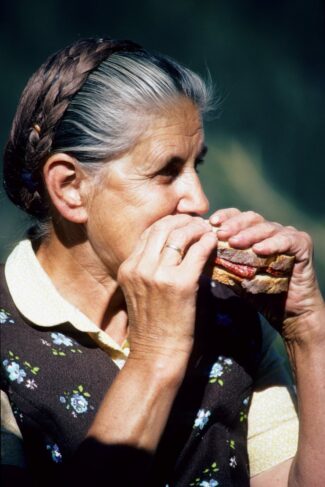Connecting People Through Bread
Bread is unique among foods: an everyday food with a wealth of meaning that goes well beyond its nutritional value.

Whether it is a slice of sourdough rye bread served with salmon soup in Helsinki or a pita bread filled with falafel in war-torn Aleppo, bread accompanies most meals around the world — today as it has done throughout recorded history.
Bread is also a part of our celebrations. Ever since our ancestors learned to master the mysteries of grinding grain and mixing and baking dough, it has not only served to feed us but also to express our hopes, fears, and devotion. The scent of a loaf just out of the oven moves us all, reminding us of some of our fondest memories.
But those memories — and the baking skills needed to evoke them — are fading.
The industrial revolution turned grain and flour into a commodity, and industrial baking alienated our societies from bread making. We lost touch with the richness of its story, tradition, and meaning. It’s no wonder that consumers today have become susceptible to fear mongering writers who claim that eating wheat is an “extreme sport” akin to ice climbing, mountain boarding, and bungee jumping.
Baking bread is a way to fight back.
When bakers in their home kitchens and craft bakeries take the time to learn about the people who produce the ingredients they use, or think about their place in the long line of bakers, they participate in a peaceful but powerful revolution. A revolution that happens through rebuilding connections that once were commonplace but have since then been lost: between the grain and the loaf, the baker and the person who receives the bread, between generations.
As we participate in this revolution, we become aware of our interdependent food chains, and we may start to wonder: apart from bread, what else is there in our lives that we have externalized and disconnected ourselves from? By letting bread teach us, we become a part of a global movement in regaining not only our favorite foodstuff but also our bodies and minds.
In today’s fast-moving and information-laden world, there is no need for more on-the-spot reactions and infuriated social media posts about current events. Instead, we need to put our shoulder to the wheel and make some bread. We need to learn to sit still and let things take their natural course. We need to immerse ourselves in the world around us, to learn and to understand. We need to realize that we need each other, in an interdependent but liberated communion.
We need to connect through bread. And that, we can only do together.